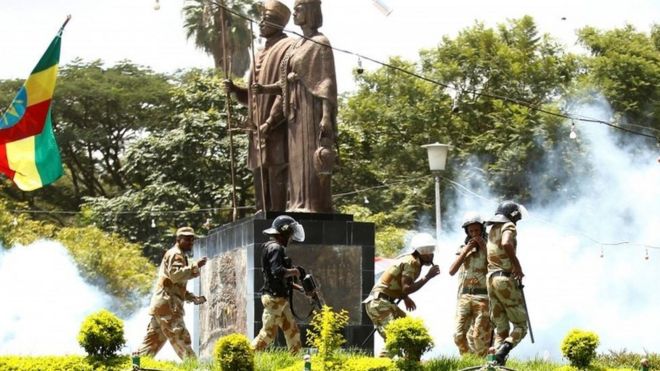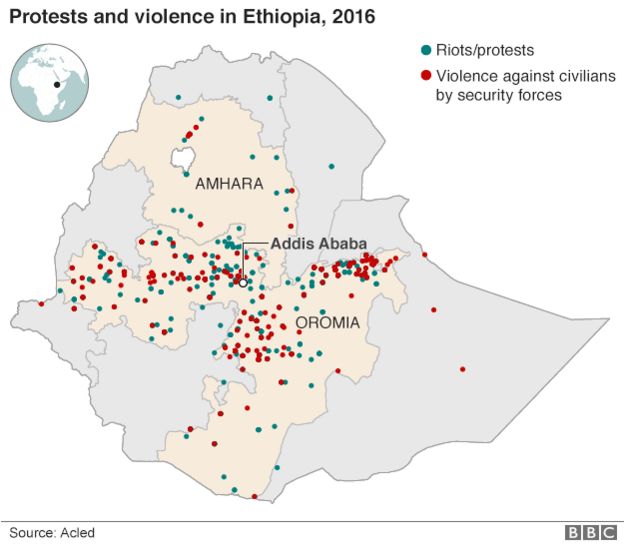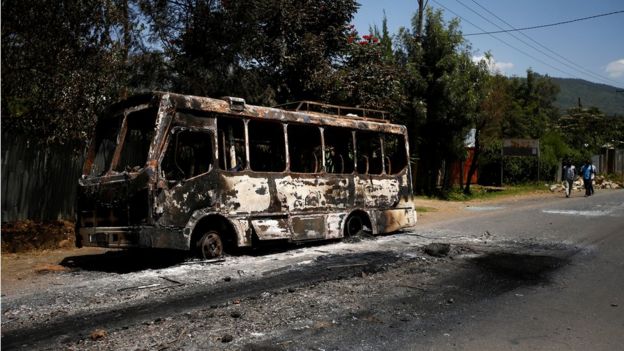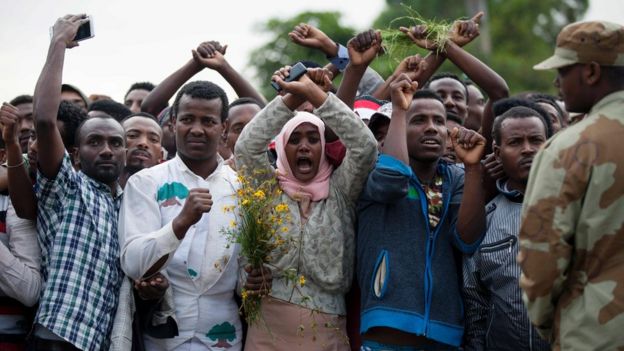Respect is honoring the worth, dignity and integrity in a person. If we have respect, nothing else matters in our life. Respect is merited particularly by those (our elders) who have gained many years of life experience and by those (our scholars) who are highly educated, because knowledge, insight and wisdom often are hard won through a lifetime of discipline and constant learning. Cultivating respect as a virtue does not necessarily mean insisting that all ideas, beliefs, or actions of people are respect-worthy. It does mean that we have to recognize and consider the basic human dignity of others, even when their ideas or values are different from our own. Respect in our own community or religious institution means not targeting fellow Eritreans and others for hatred or animosity and not for creating turmoil or violence in our society. A general attitude of respect ascertains peace and harmony among us. It also assumes that each person has something to offer or teach us, if we are willing to listen and learn with respect.
Home sweet home is the primary and best school where our character is molded and our perspectives is shaped by learning the fundamental moral principles and manners from our parents in a family setting. Respect is a faithful character attached to ethical values and norms that we develop at home. If we lose our wealth, which can be replaced any time, we lose nothing. However, if we lose our character, which is reflected by respect, we lose everything. We can only love and respect others when we love and respect ourselves. Respecting ourselves guides our moral, while respecting other people guides our manners. It is wise and noble to respect every person, if we want to have true friends. People who are disrespectful often have few friends and alliances and other people do not enjoy being near them. If we ever want to be respected in life, we have to respect other people without distinction to age, ethnicity, gender, or religion. Every person should be respected as a person irrespective of his or her economic status, religious belief, social affiliation, or political ideology. By respecting another person we respect ourselves. Self-respect leads to self-discipline and self-discipline leads to understanding the feelings of other people. We need to respect other people’s feelings even if it does not mean anything to us; it could mean everything to the other person. Obviously showing other people due respect is a critical part of maintaining decent personal relationships. The following interesting short story narrates the essence and value of respecting oneself and others.
Once upon a time, a frail old man went to live with his son, daughter-in-law, and four-year old grandson. The old man’s hands trembled, his eyesight was blurred, and his step faltered. The family ate together at the dining table, but the elderly grandfather’s shaky hands and failing sight made eating difficult. Peas rolled off his spoon onto the floor. When he grasped the glass, milk spilled on the tablecloth. The son and daughter-in-law became irritated with the mess made by the old man. “We must do something about my father,” said the son. “I have had enough of his spilled milk, noisy eating, and food on the floor.” So the husband and wife set a small Table in the corner of the dining room. There, Grandfather ate alone while the rest of the family enjoyed dinner together at the family table. Since Grandfather had broken a dish or two, his food was served in a wooden bowl. When the family glanced in Grandfather’s direction, sometime he had tears in his eye as he sat alone. Still, the only words the couple had for him were sharp admonitions when he dropped a fork, or spilled food. The four-year-old watched it all in silence. One evening before supper, the father noticed his son playing with some wood scraps on the floor. He asked the child sweetly, “What are you making?” Just as sweetly as his father’s words, the boy responded, “Oh, I am just making a little bowl for you and Mama from which you will eat your food when I grow up.” The four-year-old smiled and went back to work. The words so struck the parents hard so that they were speechless. Then tears started to stream down their cheeks. Though no word was spoken, both knew what must be done. That evening the husband took Grandfather’s hand and gently led him back to the family Table. For the remainder of his lifetime Grandfather ate every meal with the family. And for some reason, neither husband nor wife seemed to care any longer when a fork was dropped, milk spilled, or the Tablecloth spoiled. The moral lesson of the story above is that we reap what we sow. Regardless of our relationship with our parents, we miss them even when they are gone from our life. We always cherish their good deeds and wisdom and remember them with respect. If we always respect and care for our children now, they will respect and care for us when we become old and feeble like the old man in the story above. It is evident that if we acquire knowledge, it gives us the opportunity to secure professional power. Likewise, if we establish good character, it gives us the opportunity to develop respect. Our elders had good moral because they had good character. They had good character because they had wonderful wisdom. However, our moral and ethical values gradually started to deteriorate in Eritrea when some individuals disrespected our elders by addressing them ‘ata sebay’ and ‘anti sebeyti’ instead of politely and respectfully addressing them ‘atum aboy’ and ‘aten adey’. Those of us in Diasporas somehow have helped to accelerate the erosion and downturn of the decent moral and ethical values of our elders when we came to live in foreign countries which have cultural practices and values different from ours. We have seriously failed in transferring all the proper moral values and appropriate character practices we have learned from our elders to our young generation. We have failed to understand that respect is a deep admiration for good deeds. We may not notice it keenly, but every evil deed we do to another person adversely affects us in retrospect. The evil deeds that we accumulate over time will haunt us later in life and will turn us to be the most disgusting creatures on earth.
We seem to observe an outbreak of moral breakdown in our society in Diasporas. The walls of our cultural heritage and traditional practices are shattered by undesirable changes of our character. We have dismantled communities, divided religious institutions and broken homes. Our society is falling apart tragically claiming many divorces of families and separation of children from their parents. Some of our own children have gone off track to drop out of school and have even become drug dealers and members of street gangs in major cities. We have problems with our children because our communities and religious institutions are infested and infected by the opium of politics and as the result they are not able to bring us together and support one another. Politics in the true sense of the word, is decent and noble and it can be peaceful and progressive, if it is played safe and handled with good understanding. The problem in our situation is that we do not understood and practice politics legitimately with proper framework. Many evil deeds are undertaken in the name of politics. Consequently, politics have taken the center stage in many of our current issues within our Diaspora society because politics is misunderstood and misused, and in many instances it is twisted and abused. It has become the cancer of our society; at least cancer kills you only one time, but dirty politics kills you every day. We need to stop the bleeding of our society because the lingering effect of our politics in Diasporas has become a deadly practice at family and individual levels. The story narrated below can serve as an exhibit to our evil deeds in politics in our Diaspora society.
The story of Demas and Debas is a typical example to illustrate the impact of unhealthy politics in our Diaspora society. Demas and Debas were best friends for a long time. They went to the same high school in Eritrea and came to the United States as refugees at the same time. They both live in the same city with their big families. Demas has a wife and six children while Debas has a wife and five children. Both Demas and Debas drive taxis and both their spouses work in the same Nursing Home. Their children grew up as best friends sharing and exchanging toys and video games, attending the same schools, participating in the same kinds of sports, and having the same common friends. The two families were just like one big family living in two separate households. They used to attend in all types of school activities and social events together as one family. They used to go for picnic at the nearby beach and visit Eritrea together. Every day Demas and Debas used to meet for a coffee break at Starbucks. They talked about their children, family, church, and especially politics. Every time they talked politics their heated argument created a hostile and unbearable situation between them. This unpleasant and annoying relationship gradually developed into hatred and animosity between the two sick headed parents. After a while, their regular meeting for a coffee break was discontinued due to their conflict in politics. Eventually, Demas declared to be a member of the so-called Pro-Government Group and Debas became a member of the so-called Opposition Group. It was unfortunate that their longtime friendship was compromised and they look at each other like enemies. It is a pity that they do not tolerate and respect each other. They do not volunteer to greet each other, even if they happen to meet in a household of a common friend. The two spouses and their children from both families are strictly prohibited by Demas and Debas not to associate, or make any kind of social contact with their former friends anywhere and at any time. It is really shameful to create such uncomfortable and unpleasant situation between the two innocent families.
In addition, the spillover effect of politics is commonly observed in the lives of our children. Dehab, the daughter of Demas and Dejen, the son pf Debas, were engaged when they were seniors in high school. The engagement was initially encouraged and supported by the two parents. The political episode between Demas and Debas started when Dehab and Dejen were finishing college. The two pigheaded parents wanted to terminate the engagement of their children because of their own political difference. However, Dehab and Dejen got married without the consent of their parents in a court house of a certain town far away from home. They said to their parents, “Your politics is your own business; our marriage is our own business. We love you and respect you as our parents, but we do not have respect for the way you handle your political differences and divide the two innocent families. One day, we hope that you will come back to you humane senses.” Dehab and Dejen now have two lovely children: Adam and Adiam. The couple live and work in a big city not far away from their respective families. At least the two grandmothers are able to come sometimes and visit with their grandchildren and spoil them with holiday presents and birthday gifts. Having learned about the horrible experience of their parents, Adam and Adiam would never be interested to listen or read the politics of any nation when they grew up. Fortunately, Dehab and Dejen were able to stand up firm and strong to reach their goals despite the crazy ideas of their parents. However, there are still many of our children who could not break down the walls of cruelty and ignorance of their parents. In fact, it is ridiculous to observe that some of our children are not allowed to get married to their fellow Eritreans, if their respective parents are not from the same region (awraja), or if the parents do not belong to the same political group. In other words, it seems that we have actually declared to wage a civil war without guns between families and among individuals in our own society in Diaspora for the unreasonable excuse of conflicts and differences in politics.
Politics has also made its ruinous stride into the Eritrean Orthodox Christian church with the intention to regulate the church affairs and monitor the activities of its congregation. As we are well aware, the Eritrean Orthodox Christian church is divided into two separate dioceses in Diasporas: one group of churches support the government and the second group of churches oppose the government with regard to the decision made in Eritrea to remove Abune Antonios from his leadership position. The story of Wodaje and Woreja is a typical example to illustrate the impact of this division in the Eritrean families. Wodaje and Woreja were married for over 40 years with five adult children and four grandchildren. They used to worship in the same Eritrean Orthodox church before it split into two separate churches. Wodaje and Woreja were highly respected and well-liked by friends and relatives until they were overtaken by the church politics. A few years ago, Wodaje decided to worship at the church opposing the government. While Woreja decided to worship at the church supporting the government. The separation of churches created irreconcilable difference and major disagreement between the two of them. Each heated argument led to a hostile situation which escalated the level of disagreement and the magnitude of animosity in their household. The reality is that both of them did not have respect for each other. Soon enough their marriage was in trouble. This couple was either confused or disillusioned to put their marriage in such great jeopardy. Finally, they decided to end their union in marriage. The elders and the priests in both churches did not make any effort to save the marriage and to create peace and harmony in their households. Their children have tried and done their best to bring their father and mother back together in peace and to have an everlasting union. However, the two parents were too stubborn to listen to their children. The essence and purpose of going to church was either ignored or forgotten. It meant nothing to these two hard-headed parents. In other words, politics overrides and overrules the teaching of the gospel. To their children’s indignation, Wodaje and Woreja remained separated into their old age. Thus, the story of Wodaje and Woreja and the story of Demas and Debas are not unique and different among Eritrean families in Diaspora. It is sad to observe that the same dreadful and disgusting situation is still harboring in many Eritrean households in Diasporas.
Respect is important because it shows that one values another as an individual, and honors the personal rights and dignity of the person as a fellow human being.Respect usually goes a long way in developing a harmonious home and peaceful social environment. Communication has to be clear and appropriate among individuals who respect each other in order to keep the integrity and security of their mutual relationships. Respect is usually given for those who deserve it, but we need to show respect to people even to those who do not deserve it, not as a reflection of their character, but as a reflection of our own character. We came from a diverse nation made up of many different cultures, languages, ethnicity, and religious backgrounds. That kind of diversity can make all our lives interesting and challenging only if we treat each other with respect irrespective of our social and political differences. Social relationship like personal friendship and church affairs have nothing to do with politics at an individual level as it happened between Demas and Debas and between Wodaje and Woreja. If we respect one another and stick together as friends and relatives, we should be able to establish viable communities, vibrant religious institutions, and lively families. Of course, we need to remember that respect is the foundation of our common understanding and finding our common solutions for our common challenges. The basic lesson of our childhood years that we learned from our elders who have walked gracefully the path before us guided by their faith and fear of God, is to march together respecting the human dignity and integrity. Their wisdom reminds us that it is a blessing being a human being before being a person. So also, some day sooner than we could ever imagine we are going to be old too. Our children depend on us to teach them those moral principles and ethical values we acquired and learned from our elder. We are all different, but at the end of the day, we are all Eritrean brothers and sisters, who must treat each other with respect. If we do not respect each other, nobody else will respect us. Thus, if we give respect, we get respect. Subsequently, we receive the grace of our Almighty God for our humble deeds.
 Playing the victim. Ethiopia accused Eritrea and Egypt for arming, training and financing groups that it blames for a wave of protests and violence in regions around its capital Addis Ababa.
Playing the victim. Ethiopia accused Eritrea and Egypt for arming, training and financing groups that it blames for a wave of protests and violence in regions around its capital Addis Ababa.





































